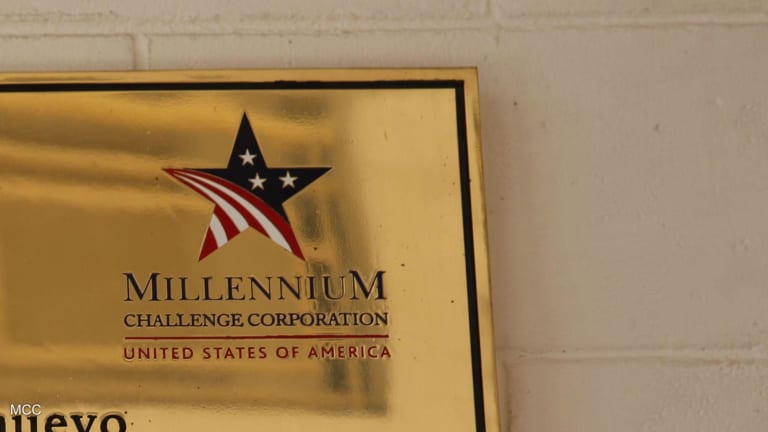
The Millennium Challenge Corp. has created a stir since its creation by then-U.S. President George W. Bush. Studies agree its work has inspired reforms in beneficiary countries.
The World Bank, for instance, cited MCC in its Doing Business report in 2007, saying that since the U.S. government corporation’s creation in 2004, 13 countries had started reforms aimed at meeting MCC criteria, and four had already met them.
“The lesson,” according to the World Bank, is “what gets measured gets done.”
MCC works unlike the other major aid arm of the U.S. government, the U.S. Agency for International Development. It tends to fund specific projects – often in infrastructure – that can be completed by a date certain, and it works only in countries that are governed well, invest in their people and promote economic freedom.
So far, MCC has approved $8.4 billion under its compact and threshold programs. A compact comes with a large, five-year grant provided to a country that meets MCC eligibility criteria. Threshold programs involve smaller grants to countries that come close to meeting such criteria and have demonstrated firm commitment to improving their policy performance.
There are currently 23 compact countries, and MCC has completed compacts in seven — Armenia, Benin, Cape Verde, Georgia, Honduras, Nicaragua and Vanuatu. The agency has also supported 23 threshold programs, with many of the countries eventually winning compact grants such as Burkina Faso, the Philippines and Tanzania. Some tangible return on investments: training of more than 148,000 farmers, production in more than 82,000 hectares of land, and design and construction of more than 4,900 kilometers of roads.
But despite the applause for MCC’s accomplishments, funding for the agency is in doubt as U.S. lawmakers mull severe budget cuts.
MCCCEO Daniel Yohannes has been working to get congressional approval for concurrent compacts and even extensions to current ones in “exceptional circumstances.”
“Allowing MCC, in exceptional circumstances, to extend the duration of our five-year compact period for up to two additional years would allow MCC and our partner countries to pursue a fuller set of options for managing challenges and achieving compact objectives,” Yohannes said in a prepared testimony for a March 15 hearing of the House Appropriations subcommittee on State and foreign operations.
A concurrent compact refers to a separate contract forged by MCC and the beneficiary country based on specific timing requirements of individual projects rather than as part of a package with a single timeline.
Then there’s the question about the future of the organization itself. Some believe it would eventually be subsumed under a reformed USAID. Prospects for an increased MCC budget are perennially bleak as the agency is “slow” to disburse its appropriated funding: MCC still has around $6 billion of the $10 billion appropriated to it by Congress at the U.S. Treasury.
In an op-ed for The Washington Post earlier this week, Devex President Raj Kumar and Rotary International CEO John Hewko made a bold proposal: Why not transform MCC into a multilateral agency?
“While we’re cutting government spending, Britain and Australia are increasing their foreign aid budgets (even as the former has sharply cut its own government spending) and are looking for effective, multilateral programs to fund. Other allies, too, might be interested in supporting one of the world’s more innovative, results-oriented foreign aid programs,” Kumar and Hewko wrote. “Why not invite Australia, Britain, Canada, Germany and others to put their money into the MCC and take a seat on the board? After all, the MCC picks countries and projects based on objective indicators that are maintained by non-governmental third-party entities; day-to-day U.S. foreign policy interests do not figure into the country selection and grant-making process.”
One particular benefit, they argued, is the exponential spread of the so-called MCC effect, or the improvement in the behavior of leaders and the implementation of sound policies to gain funds, due to the involvement of other donor nations.
They concluded: “Over the past few years, nearly every think tank inside the Beltway has published well-reasoned reports arguing for restructuring our antiquated foreign aid apparatus. But momentum for a legislative overhaul has fizzled, and we’re in a season of cutting, not reforming. Transforming the MCC into a global agency helps solve issues for this country and beyond by offering a small way to reduce our deficit while preserving an innovative and effective government program that is making a difference in the world.”
With international support, the number of completed MCC compacts could rise swiftly.
Read more:
Check out the previous DevTrivia and play the DevTrivia game on Facebook.








